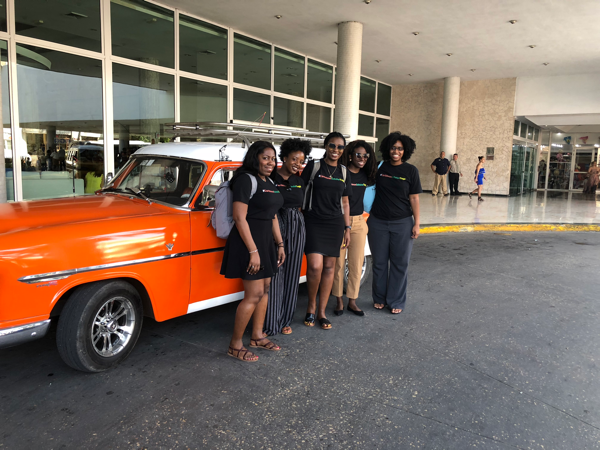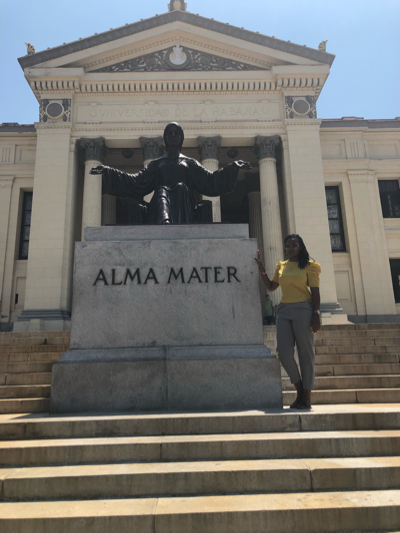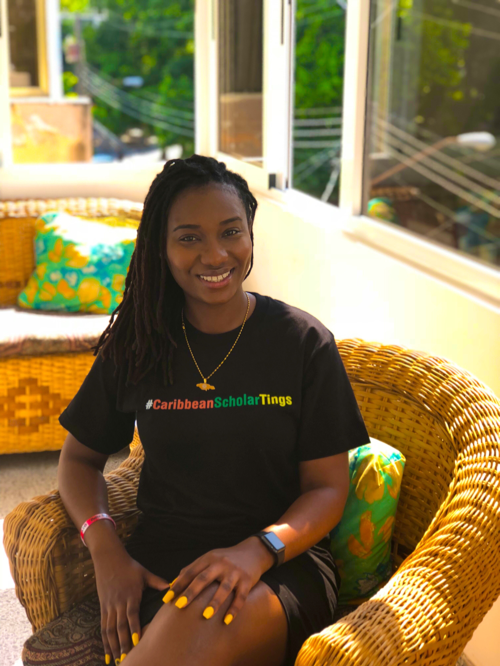Commission for Global Dimensions of Student Development
Monday, 25 February 2019 - 12:07pm
One of my concerns with deciding to work abroad was losing sight of my Caribbean roots in terms of scholarship and best practices in the region. While I found small ways to stay immersed in literature throughout undergraduate and graduate school, I was not sure how I would continue/be motivated to do so with a full time job. Networking with Afro-Caribbean scholars based in the US has been an entry point for me to stay grounded to Caribbean scholarship and advancements. So when Kat, a Guyanese scholar, and friend (who I met through networking) asked me if I was interested in presenting at the annual Caribbean Studies Association Conference (CSA) in Cuba, I had no other response but, “YES!” At that point I did not know what we were presenting on but I was still excited. After looking at the conference details, I knew that any opportunity for me to be in such a space would allow me to share my scholarship and learn from colleagues doing critical work in the Caribbean. Additionally, growing up in Jamaica and learning about Caribbean history made me always want to visit Cuba one day, so; win-win!

During our first conference call as interested presenters, I was excited but also nervous to be in such a space. I was the only full time entry level practitioner on a call with brilliant Afro Caribbean women who were either currently pursuing their PhDs or their masters from highly ranked institutions. Though I had just graduated from a well-known graduate program, I was nervous that I was not as deep into the scholarship as they were and I was not sure if I would be able to bring the same critical analysis that they had. I also was still trying to learn my job and had not picked up a text book since my last paper 6 months prior. Despite this, I was determined to not allow my fears to get in my way.
Through our conversation, we realized that we all had a story to tell, a perspective to share and we weaved it together coherently. We ended up presenting on how Afro Caribbean Students make meaning of their bi cultural identity development in the US. I was able to draw on my experience as an international student in the US, and my graduate school research that also addressed these experiences. As a practitioner, I was also able to reflect on my experience as a Residence Director and club advisor to better understand what it means to support the Caribbean student experience across different institution types in the US.
Our presentation was one of the first of the conference and we engaged in critical conversations in a packed room, all as first time presenters at CSA. This experience was a defining one for me, as I had always been confused about the line between being a scholar and practitioner and, while I called myself one, I didn’t know what it truly meant. This opportunity allowed me to define this for myself and I left with the understanding that I can be a full time practitioner while having conversations about research and best practices. I learned that I am able to occupy both spaces and still do meaningful work. Attending that conference allowed me to also appreciate the knowledge generated at non-student affairs conferences and further highlighted how various phenomena and current events may affect the student experience in my halls. It allowed me to re-imagine my journey in the field and validated my practice and scholarship too.
Highlights of my trip included being in presentations and hearing people talk about familiar places in the Caribbean in patios and creole. I was on the edge of my chair, willing to engage in conversations about research findings and latest developments from climate change to supporting mental health within the region. Leaving what felt like my aunties, uncles, and cousins at the conference to explore Havana and its rich history was another highlight. Whether it was chatting with locals to find the cheapest rates on Wifi cards, trying a different lunch spot or practicing my Spanish while talking about Bob Marley, roaming the streets of Cuba affirmed my identity as a Caribbean woman and revealed a beautiful part of the world that was hidden from me.

Additionally, I was able to visit the University of Havana (UH), a campus that seems to be bustling with activities every day. UH is one of the oldest universities in Cuba and one of the first to be founded in the Americas. It was a humbling experience to be able to tour the campus and talk to faculty, students, and staff despite my limited Spanish. Their collectivist approach to education made me think more about the work that I currently do with students and challenged me to consider other successful models. As an international student if you ever have the opportunity to attend a research conference in your home region, I strongly recommend it. To be a scholar in a place I called home further validated my international student experience and gave me a platform to share my scholarship with those who truly relate.
Bio of Abigal Smith
Born in England, Abigail Smith was raised in Kingston, Jamaica. She came to the US in 2011 to pursue her undergraduate degree at Randolph College in Lynchburg Virginia. Abigail graduated with a BA in Sociology with minors in International relations and American Culture with a focus on the Caribbean relations. During her time at Randolph, Abigail discovered her passion for working with college students and her desire to one day work in the field when she returned home to Jamaica. This led her to pursue her M.A from the HESA program at the University of Connecticut. Abigail now works at Pace University in Westchester, NY as a Residence Director. Her research interests include racial identity development of Afro Caribbean students in the US and student affairs on the global scale.

